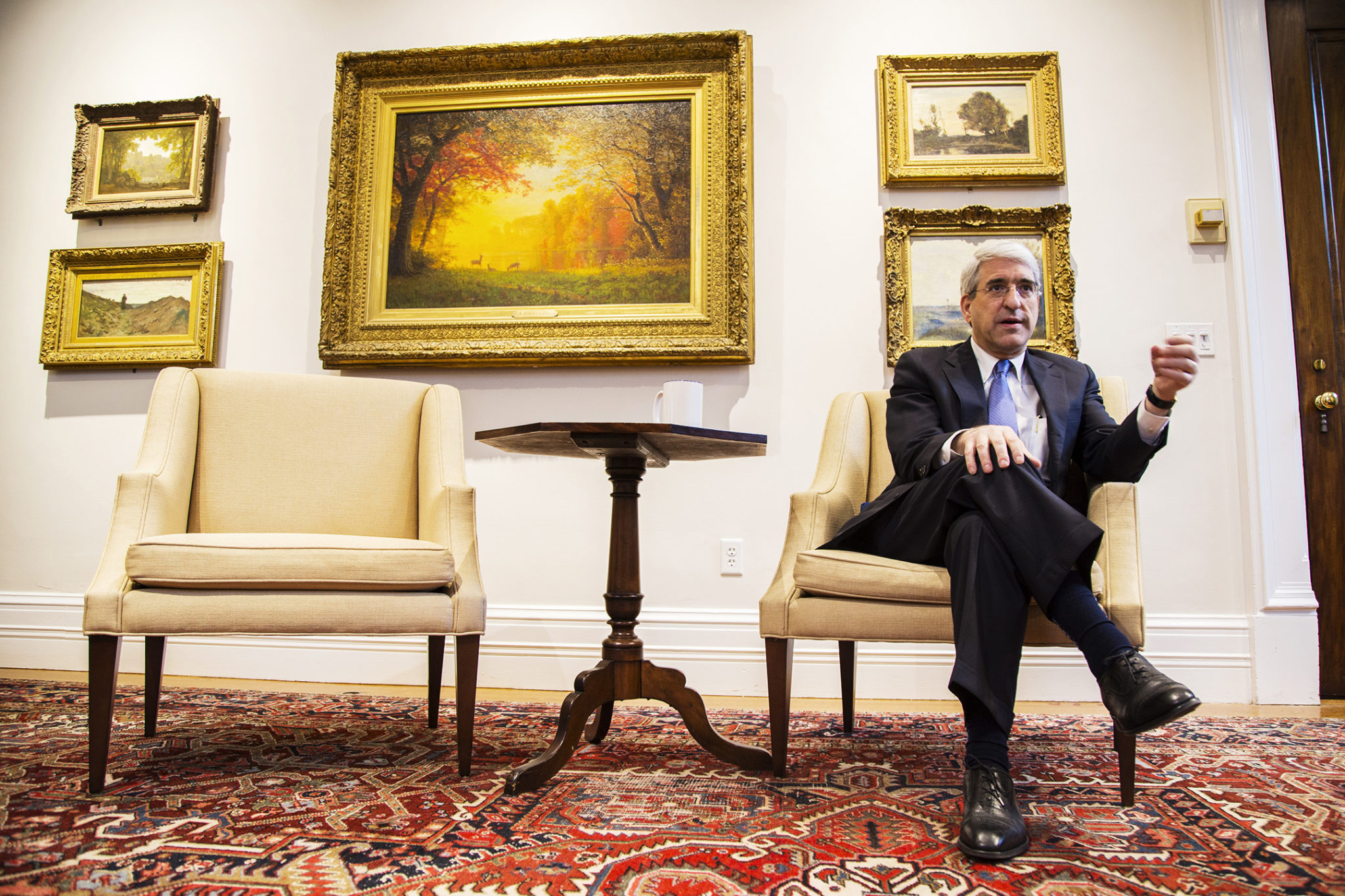
Yale Daily News
As the coronavirus wreaks havoc across the country, the University launched the Yale Community for New Haven Fund on Thursday afternoon to support healthcare and assist local businesses in Elm City.
In an email Thursday evening, University President Peter Salovey announced that, in addition to the indirect impact of Yale’s doctors and researchers, the University has also launched the Yale Community for New Haven Fund. Set up in partnership with the United Way of Greater New Haven and the Community Foundation for Greater New Haven, the fund will channel aid directly into the Elm City, according to Salovey. While the University itself has already contributed $1 million to the fund, Salovey wrote that Yale will solicit donations to reach the fund’s $5-million goal. He added that the University will match every dollar given by students, faculty and staff.
“Through the new fund, Yale will support the delivery of healthcare, assistance to local businesses, community educational needs, and area not-for-profits focused on such pressing issues as the well-being of children and families, homelessness, and food insecurity,” Salovey wrote. “New Haven Mayor Justin Elicker has clearly articulated these as among his most important concerns.”
Yale’s Office of New Haven Affairs will handle all disbursements and is working to start those as soon as possible. The advisory committee has not yet been formed, according to Yale spokesperson Karen Peart.
The United Way and the Community Foundation consulted with Yale to help jumpstart the fund. Both foundations’ CEOs told the News that they expect to continue work with Yale’s ONHA to coordinate their coronavirus responses. Yale Associate Vice President of New Haven Affairs and University Properties Lauren Zucker gave each foundation a call on Wednesday to ask for their help.
“Yale actually reached out to us to let us know the fund was something they were talking about and to make better sense of needs that we were focusing on,” United Way of Greater New Haven CEO Jennifer Heath told the News. “I have been really struck by how, even though this is so awful and it’s awful in the sense that we all have a loved one we’re concerned about and there’s so much uncertainty about what’s ahead, that even despite that there have been so many people who want to help.”
Even before Wednesday, the Community Foundation and the United Way created a joint fund to support nonprofits on the front lines of the pandemic. In addition, the Community Foundation is accelerating its existing grants to nonprofits, and the local United Way chapter is participating in the statewide fund to support individuals most affected by the coronavirus.
Community Foundation CEO Will Ginsberg noted that Yale is especially focused on small businesses, as opposed to the United Way and Community Foundation’s nonprofit-oriented approach. Yale funds, he said, will provide much-needed relief to Elm City establishments that have suffered greatly in the economic downturn.
But following Salovey’s announcement on Thursday, some students took to social media to criticize what they saw as a negligible figure coming from the University in comparison to its large endowment.
Josemari Feliciano SPH ’20 told the News that the email was “comical,” given that Yale has “$30 billion reserves in [its] endowment to help everyone, both students and the community, readily.” He added that Yale still must take into consideration financial burdens placed on students as a result of the pandemic.
In a Facebook post, Andrew Bilodeau ’21 urged his peers to donate directly to Elm City organizations, including the beneficiaries of the Yale Community for New Haven Fund. He told the News that while he supports Yale’s efforts to “do more” for New Haven, the recently-announced fund “falls far short when the situation is so dire and Yale has so much wealth.”
University spokesperson Karen Peart did not immediately respond to questions about students’ calls for increased contribution to New Haven on Thursday evening.
Mayor Justin Elicker declined to comment on the new University fund. But he has previously called on Yale to increase its voluntary contributions to the city, starting with a campaign pledge to negotiate a nearly fourfold increase with the University — amounting to a goal of $50 million annually.
Since assuming the city’s top office, Elicker has not shied away from criticizing his alma mater. When announcing his budget proposal in March, Elicker slammed Yale for failing to meet its “ethical responsibility” to the city it calls home. The University’s $12 million annual payment — when juxtaposed with its $4.1 billion annual revenue — indicates Yale’s failure to meaningfully contribute to New Haven, he said.
In an op-ed responding to the mayor’s criticism, Salovey emphasized Yale’s monetary contributions via its employees and programs like New Haven Promise, the University’s $5-million annual property tax payments on non-academic buildings and its $12-million payment to the city last year — which, according to Salovey is the largest of any university and will increase in the years to come, although not at the rate Elicker requested.
As of March 2, New Haven’s proposed operating budget for the 2020–21 fiscal year is $569.1 million.
Jose Davila IV | jose.davilaiv@yale.edu
Mackenzie Hawkins | mackenzie.hawkins@yale.edu
Valerie Pavilonis | valerie.pavilonis@yale.edu







